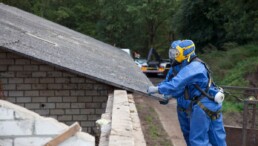How Can a Victim Advocate Help You?
Experiencing a violent crime—especially sexual abuse or assault—can leave deep emotional and psychological wounds. Survivors often face a complex and overwhelming path to healing and justice, going through a range of difficult emotions on their road to recovery. You don’t have to navigate that path alone. A victim’s advocate is someone who walks beside you, offering support, guidance, and compassion every step of the way.
Victim advocates are trained professionals who provide a safe, nonjudgmental space where you can begin to process what’s happened. They’re here to listen, to help you understand your rights, and to make sure you feel empowered and informed as you move forward—at your own pace.
A Voice For Victims
In the aftermath of a traumatic experience, many survivors feel overwhelmed by fear, uncertainty, or the belief that no one will truly understand or believe what they’ve been through. A victim advocate stands alongside you, not to speak for you, but to help you feel strong enough to speak for yourself.
Advocates understand how difficult it can be to relive painful events, especially in intimidating environments like police interviews, legal proceedings, or courtroom hearings. They help you organize your thoughts, remember key details, and feel prepared for whatever step comes next. If you’re unsure about whether to take legal action, your advocate can offer clarity so you can make choices that feel right for you.
Most importantly, they remind you that you are not alone. Your voice deserves to be heard, and your experience deserves to be acknowledged with empathy, respect, and dignity.
A Caring Ally
A victim advocate can help you understand your legal rights and explain your options in clear, simple terms. They can guide you through each stage of the justice system, from reporting a crime, to navigating complex procedures, and even attending hearings and other important meetings with you, all while keeping your well-being front and center.
They’re also there to help you prepare important paperwork, such as restraining orders, and to connect you with local resources like counseling services, support groups, or other information. Your advocate will ensure that your voice is heard, your needs are respected, and your choices are honored.
Our In-House Victim Advocate
At Shepard O’Donnell, we know how difficult it can be to come forward with a sexual abuse claim. That’s why our legal team includes a dedicated in-house victim advocate. From your first conversation with us, you’ll have someone by your side who understands the emotional toll of trauma and is there to offer guidance, comfort, and practical support.
If you have been the victim of physician sexual abuse, school sexual abuse, or sexual abuse while attending a Residential Treatment Facility, we encourage you to take the important first step in holding your abuser accountable. Contact us at (800) 451-4471 for a free, confidential, no-obligation discussion about possible legal action. We would be glad to explain what’s involved in the process of filing a claim. Read more about our approach to working with sexual abuse survivors in our blog.
We are committed to protecting your confidentiality and ensuring that you feel safe and supported throughout the legal process. Your healing, your rights, and your story are important, not just as a legal case, but as a person who matters.
Sexual Abuse Common in Private Youth Residential Treatment Facilities
If you suffered sexual abuse at a residential treatment facility (RTF), you are not alone. RTFs are intended to support vulnerable young populations suffering from mental health, substance use, and behavioral challenges. Troubled children and youth enter these facilities expecting help and support yet the very people tasked with helping them are sometimes the ones who cause further trauma.
In 2024, the Senate Finance Committee released a scathing report revealing widespread abuse and neglect at many youth RTFs across the country. Based on a two-year investigation into dozens of facilities, including those in Massachusetts, operated by four of the largest behavioral health providers in the country—Universal Health Services, Acadia Healthcare, Devereux Advanced Behavioral Health, and Vivant Behavioral Healthcare—the report reveals that RTF providers frequently optimize profit over the wellbeing and safety of children and youth. While this report concerns placements financed by Medicaid and the child welfare system, children whose stays are covered by private and public funds often overlap in the same programs, including in facilities at-issue in this investigation.
A key finding of the investigation is that children “suffer harms such as the risk of physical, sexual, and emotional abuse at the hands of staff and peers, improperly executed and overused restraint and seclusion, inadequate treatment and supervision, and non-homelike environments that are often unsanitary and unsafe. These harms amount to acute safety concerns and have long-term effects, including suffering, trauma and even death.”
Prioritizing Profits Over Patients
How can this happen? Private residential treatment is big business. Facilities are marketed as nurturing, supportive solutions to challenging behavioral and mental health challenges. Websites are full of encouraging language such as “treating individuals with respect”, “operating with integrity”, “dedication of staff”, “provid[ing] a quality, effective and positive experience”, “patients are our top priority”, and “compassionate, understanding behavioral health support”.
It turns out much of this language is lip service, intended to keep shareholders happy, federal dollars flowing, and trusting, well-meaning parents in the dark so they keep sending their children for what they believe will be “compassionate, quality care.”
Because many RTFs are reimbursed by the government on a per patient basis, they are incentivized to cut costs and corners in order to reap big profits. The congressional report calls this out directly: “The risk of harm to children in RTFs is endemic to the operating model. The harms children in RTFs experienced are the direct, causal result of an operating model that incentivizes providers to optimize revenues and operating and profit margin.”
Unqualified, Overburdened, Undertrained Staff
Part of their cost-cutting measures involves those related to staffing. Whether that means hiring less qualified (and, therefore, cheaper) staff or not enough staff in relation to the number of patients, the resulting lack of appropriate personnel and supervision creates an environment ripe for abuse.
The congressional investigation found that “children spend the majority of their time supervised by…staff who are ill-equipped to address their complex behavioral health needs and, in some cases, children interact with staff who pose a direct threat to their wellbeing… In the worst of circumstances, children at RTFs suffer…sexual, physical, verbal, or emotional abuse at the hands of staff. Mistreatment is endemic to the conditions at RTFs.”
Whether it is the staff perpetrating these atrocities or creating an environment in which they are allowed to occur, unchecked, by others, the lack of investment in qualified employees is putting patients in danger. Maximizing profits at the expense of the most vulnerable patients is abhorrent and must be stopped.
Blaming the Victim – Again
It is an unfortunate reality that predators target the most vulnerable. It stands to reason, then, that RTFs should have a heightened duty of care, with more than the average protections in place to shield their vulnerable, often fragile patients. The congressional investigation found that, in reality, “horrific instances of sexual abuse persist unremediated inside RTFs.”
Many of these facilities have inadequate processes or policies in place to protect their patients or give them a voice. Sadly, because of their mental health or behavioral challenges, patients are frequently discounted as people, and their complaints against staff members or fellow patients go unheeded. In some instances, even multiple complaints about individuals or situations have not been followed up on, and accused staff are simply moved to another wing or another facility altogether without disciplinary action.
Scapegoating tactics abound. Accused staff members or peers will claim that sexual activity was consensual, that the victim was “promiscuous”, that they were “in a relationship”, or a host of other excuses that deflect blame away from themselves. And, facilities hide behind HIPAA as an excuse to keep these incidents quiet. Victims feel victimized all over again when their complaints are minimized or not taken seriously.
Denial: We’ve Seen This Playbook Before
Any attempts at remedial action fail to address the underlying culture of harm at RTFs. Despite being found in violation of state and federal regulations, RTFs in Massachusetts rely on the state’s lack of resources for follow-up to ignore demands to improve practices. This is very much the kind of playbook that we, at Shepard O’Donnell, have seen before from tobacco and asbestos companies: there is a well-known, well-documented, dangerous, and systemic problem, but the companies continue to profit and, therefore, use their substantial resources to fight in the courts and in the press to deny any wrongdoing.
And yet, despite their denials, asbestos manufacturers and tobacco companies regularly pay large financial settlements to victims. Isn’t it time RTFs were held to the same account?
Contact a Sexual Abuse Attorney
If you suffered sexual abuse at a RTF, know that it was not your fault. As this congressional report shows, abuse is rampant in many of these facilities. The companies that own and manage these facilities have allowed, even enabled, this abuse to take place and should be held financially accountable.
In our experience working with survivors of sexual abuse, we have learned how difficult it is, not only to come to terms with what happened to you, but also how difficult it is to come forward and tell your story. We are empathetic yet fierce defenders of your honor and promise to do everything in our power to hold sexual offenders and the institutions that employ them, accountable for the harm they’ve inflicted. When you’re ready, we are available for a confidential, no-obligation discussion about possible legal action.
What Are Some Common Emotions Experienced by Physician Sex Abuse Survivors?
The road to healing for survivors of physician sexual assault is long and difficult, and no two experiences are the same. Although no one can truly understand your experience in the way that you do, in our time working with survivors of physician sexual abuse, we’ve learned about some of the primary emotional hurdles survivors experience. We’ve worked with alleged victims of Dr. Derrick Todd as well as those allegedly abused as children by pediatrician Dr. Richard Kauff. We know that it takes an immense amount of courage to seek legal counsel and we understand that not everyone is ready to take that step. No one who has been sexually abused or assaulted is to blame and perpetrators, especially those in a position of trust, should be held responsible. While the emotions outlined below may not mirror your own, we understand the complex and difficult emotional journey survivors face.
A Difficult Journey to Healing
Sexual assault is never the survivor’s fault.
Nevertheless, survivors are often embarrassed to acknowledge that this terrible crime was committed against them, fearing judgment from those around them. They may feel they won’t be believed, especially if the crime occurred many years ago, as in the case of some pediatric abuse cases. They may also feel ashamed and wonder how they could have “let it happen.” And yet, the inherent imbalance of power in a doctor/patient relationship makes it very difficult for a patient to know whether what the doctor was doing was actually a normal part of the examination, as they asserted it was.
These complicated emotions are especially true for children, most of whom do not have the capacity to recognize that certain behaviors are, in fact, abusive. It can be extremely difficult for children to identify sexual abuse in a doctor’s office where part of a routine physical examination requires them to remove their clothing. Children cannot be expected to understand when aspects of an examination cross a line. Even if they suspected something was not right, as children, they likely would not have been able to articulate exactly what happened or advocate for themselves sufficiently. They may also feel that adults wouldn’t believe them.
This fear of not being believed, even as adults, is sometimes compounded by the fear of being ostracized or judged by friends, family, or even colleagues when they learn of what happened to them when they were so little. Victim-shaming is a profoundly damaging reality and unfairly shifts the burden of responsibility from the perpetrator to the victim. Addressing victim-shaming requires a shift towards understanding, empathy, and support for survivors, focusing on holding perpetrators accountable and creating environments where individuals feel safe and validated in sharing their experiences.
Survivors of childhood physician sexual abuse can also experience feelings of guilt, wrongly assuming that they somehow encouraged or allowed this behavior. They may resist coming forward with their story because they don’t want to upset a parent or caregiver, especially if other family members were patients of the same doctor. Although there is nothing they could have done to prevent the behavior, they may feel that they should have done something to protect a sibling. The same is true for parents who were unable to protect their children from the abuse. As in the case of Dr. Kauff, parents were often in the room at the time of the abuse and may feel tremendous guilt and shame at not having understood what was happening. Unfortunately, this alleged predator managed to hide his actions through deceit and lies.
Some victims feel a sort of ambivalence, not fully acknowledging or understanding the trauma inflicted on them when they were so young. This, too, is normal, though working through past traumatic experiences can sometimes lead to enlightening self-discovery. Adult survivors of childhood physician sexual abuse often experience “white-coat syndrome,” which is a deep-seated fear of going to the doctor. They may engage in negative or inappropriate relationships, or have difficulty with emotional and sexual intimacy. Others may struggle with a range of mental health issues, including depression, post traumatic stress disorder, eating disorders or addiction that prevent them from sharing their experience. Better understanding the past sometimes leads survivors to better understand some of the life choices they’ve made, allowing them to move forward in a positive direction.
Anger is, understandably, a large part of the emotional journey of a survivor of childhood sexual abuse by a physician. Individuals wonder how those around them could have let this happen and anger directed towards a parent or caregiver can damage family relationships. More common, however, is the justifiable anger directed at the offending doctor and the institutions that failed to protect victims from a dangerous predator. That anger can be usefully channeled into seeking justice for the crimes that have been committed against them.
Hospitals and Clinics Should Also Be Held Responsible
Hospitals, clinics, and other medical institutions that allow physician abuse to occur must be held accountable. Everyone at the facility has a responsibility and a duty to protect their patients and staff, especially if those patients are children. Valid questions to determine whether institutions have done all they could to protect victims include:
- Do they provide sufficient oversight?
- Do they audit their physicians’ practices from time to time?
- Is there a nurse or other staff member in the exam room to keep behaviors in check?
- Do they screen doctors and staff for past child abuse issues?
- Do they have easily accessible channels that facilitate victims coming forward?
- Do they require training to maintain appropriate boundaries?
Failing to protect those in their care can be considered negligence, for which compensatory damages could be available. Individuals who have suffered at the hands of their physician deserve to be adequately compensated.
Call For Legal Advice Before Time Runs Out
We understand that survivors of abuse may be reluctant to come forward and pursue a claim, however, we encourage you to take the important first step in holding your abuser accountable before it’s too late. In Massachusetts, victims of childhood sexual abuse must file a claim within 35 years of when the abuse occurred, or within 7 years of the time they discovered an emotional or psychological injury, whichever period expires later. Some victims of Dr. Kauff are now in their 40s, and this time limit is fast approaching. For survivors of sexual abuse as adults, that statute of limitations is just three years. Call us at (800) 451-4471 for a free, confidential, no-obligation discussion about possible legal action. We would be glad to explain what’s involved in the process of filing a claim. Read more about how we work with sexual abuse survivors in our blog.
Look After Your Mental Health
If you are a survivor of physician sexual assault or abuse, any emotions you may be experiencing are valid and we encourage you to be patient with yourself on your path to healing. Below is a collection of resources we have found that are available, either free of charge or at an affordable cost, for survivors of sexual assault and abuse.
- 24/7 Domestic Violence & Sexual Assault Hotline: 508-588-8255
- Health Imperatives
This program includes nutrition assistance, a domestic violence shelter, sexual assault counseling, and more. - Joyful Heart Foundation
The mission of the Joyful Heart Foundation is to transform society’s response to sexual assault, domestic violence, and child abuse, support survivors’ healing, and end this violence forever. - Massachusetts 2-1-1
Simply dial 2-1-1 on your phone to be connected to someone who can help you find health and human services available in the community. It is available 24 hours a day, seven days a week. - Trauma Resource and Support Program at Cambridge Health Alliance
If you or someone you love has been affected by violence, hatred or abuse, the Trauma Resource and Support Program is here to help and works directly with victims to help them find community resources, medical services and the courts. Our services are always confidential and are provided at no cost. - The Boston Area Rape Crisis Center
The Boston Area Rape Crisis Center’s mission is to end sexual violence. We empower survivors of sexual violence to heal and provide education and advocacy for social change to prevent sexual violence. - Substance Abuse and Mental Health Services Administration
SAMHSA is the agency within the U.S. Department of Health and Human Services that leads public health efforts to advance behavioral health. - Day One RI
Day One is leading efforts to address sexual assault as a community concern. We are committed to supporting survivors and increasing prevention. - Open Path
Open Path Collective is a nonprofit network of psychotherapy professionals who offer discounted services to members. Providers offer both in-person and telemedicine services. Rates for mental health services are offered at a significant discount to prevailing local prices.
If you are a survivor of physician sexual assault or abuse, any emotions you may be experiencing are valid and we encourage you to be patient with yourself on your path to healing. When you’re ready, we are available for a confidential, no-obligation discussion about possible legal action, but in the meantime, we urge you to put your mental health first.
“Retired Massachusetts pediatrician pleads not guilty to abusing young patients” – Erika O'Donnell Quoted in Article
Erika O’Donnell’s insights were featured in AP News’ article, “Retired Massachusetts pediatrician pleads not guilty to abusing young patients”
“The allegations against Dr. Kauff are truly disturbing,” Erika O’Donnell, a partner with the law firm Shepard O’Donnell who is representing nine accusers, said in a statement.
“Not only did he victimize children, but he did so right in front of their parents — using his position as a trusted physician to deceive victims and their parents,” she continued. “At their most vulnerable, he broke their trust and his victims and their families are paying the price.”
Are You Considering Filing Physician or Educator Sexual Abuse Charges? We Have Your Back.
We understand that coming forward in a sexual abuse case and pursuing legal action is one of the most difficult and painful experiences anyone can go through. We applaud your bravery.
If you are a victim of physician or educator sexual abuse or sexual assault, you may feel confused, embarrassed or ashamed and we know that you may be hesitant to share your experience. Our place is not to judge. We are here to listen to your story and answer any questions you may have about the process of filing a claim, what happens next and what is involved in moving a lawsuit forward. You will not have to pay us out-of-pocket for any confidential conversations or our legal services.
When you decide the time is right for you to pursue legal action, we are here to help you understand your options and choose the one that’s right for you. We pursue civil actions against the individuals involved, as well as the affiliated institutions that failed to prevent or stop the abusive behavior. You will speak with a female attorney who is empathetic, compassionate and experienced in working with victims of trauma. Together, we will determine your comfort level and where we go from here.
 “One of the most important things I can do for victims of sexual abuse is to listen to their experience and support them through the process,” says attorney Erika O’Donnell. “Whether they are ready to fight, or want to proceed at a more cautious pace, I will meet them where they are. My job is to be by their side while we seek justice for their life-changing trauma.”
“One of the most important things I can do for victims of sexual abuse is to listen to their experience and support them through the process,” says attorney Erika O’Donnell. “Whether they are ready to fight, or want to proceed at a more cautious pace, I will meet them where they are. My job is to be by their side while we seek justice for their life-changing trauma.”
If you choose Shepard O’Donnell as your legal partner to hold those individuals who flagrantly breached your trust accountable for their actions, you will work with the same attorney for the duration of your case. While some firms might pass you around a team of lawyers, we value your privacy and understand that a single point of contact can be comforting. Whether you prefer virtual or in-person meetings, or if you’d rather text or call, we will tailor our communication to fit your needs.
We are empathetic yet fierce defenders of your honor and promise to do everything in our power to hold sexual offenders, and the institutions that employed them, accountable for the harm they’ve inflicted. At this time, we are actively evaluating claims of sexual abuse against Dr. Richard Kauff and Dr. Derrick Todd.
Please call us at (800) 451-4471 if you’d like to have a confidential, no obligation conversation about filing a potential physician sexual abuse lawsuit. We are here to help.











